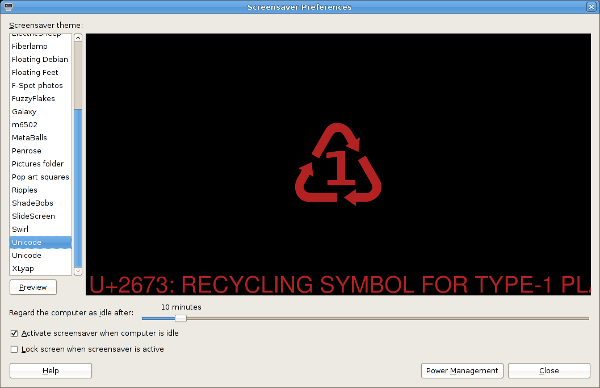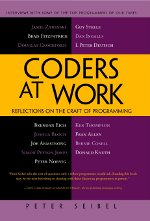
Way back in mid-late May, I switched keyboard layouts from standard
US QWERTY to
Colemak. I’d played around with the layout a bit before that and thought it seemed pretty solid, but it hadn’t been a good time to switch then. (I did, however, snag the idea of remapping
Caps Lock to
Backspace from that early trial though, and to this day that’s probably the most annoying thing about typing on
QWERTY, because I associate
Caps Lock with
Backspace on both layouts now. Anyway.) This time, however, I strategically timed it to coincide with the end of classes, so I had no assignments due and could make a fool out of myself during the first few days of my summer job. Smashing success.
It only took a couple days to get past the point of extremely frustrating slowness. Two weeks in I was up to 40wpm, which was about the point where I stopped noticing that I’d taken a backwards step in typing speed, as it didn’t really hinder anything I did on a regular basis. By the end of the summer I was back up to the same speed as I’d been prior to switching (around 75wpm). I didn’t really do any typing lessons after the first few days, as I found just doing whatever I would normally do on a computer much more interesting.
The biggest hurdle after the initial adaptation of actually being able to type on the layout was, for a command-line lover like myself, dealing with “hjkl” not being a convenient way of navigating around in console apps like mutt, vim, aptitude, and less. After a bit of experimentation, I stole an idea from
this page and started adapting my dotfiles to make these programs use
ne for
jk and
st for
hl, and that seems to be working out well. The worst key that this clobbers in general is
n, but it’s pretty easy to remap that to
QWERTY’s
n, which is easy to remember and is the hardly-used
k on the Colemak layout.
For any interested others, I’ve thrown the relevant dotfile snippets up
here. I’d been putting off blogging this because I wanted to finish setting up dotfiles/homedirs-in-git la
Joey Hess beforehand, but I figure I’ll never actually get it done if I keep using that excuse. For mutt, the given snippet goes in your .muttrc (or whatever you source keybindings into your muttrc from). The same goes for vim. Aptitude keybindings go in .aptitude/config. For less, it’s a little more arcane: first you stick your keybindings in .lesskey, and then you run the command
lesskey. I also remapped screen’s escape key to ctrl-t.
Why not Dvorak?
Dvorak seems to be the most well-known
QWERTY alternative around, so why didn’t I switch to that if I wanted something better? I did try Dvorak first, but the incredibly uncomfortable combination of
ls on the right pinky was a complete deal-breaker. I also found it very slow-going to try to adapt to Dvorak after typing on
QWERTY for years. The
Colemak FAQ has some more notes on Dvorak deficiencies that it addresses.
Overall, I’ve found typing on Colemak to be remarkably lacking in anything that particularly bothers me. I still type on
QWERTY a little, but mostly just for login prompts on
Athena workstations and the desktop machine in my room which my roommate sometimes uses. I have to glance down at the keyboard when typing on
QWERTY to get it back in my head, but generally I only need it for a few minutes anyway and it’s no big deal. As long as I glance down occasionally I can still maintain a speed level well above that of frustration. On the plus side, this means that if I look at the keyboard when typing normally in Colemak, I get screwed up because I start thinking in
QWERTY. So it’s good touch-typing reinforcement in general.
 This spring I'm taking
a class that does
all its programming assignments in MIT Scheme. The last time I had to write
Scheme for class, we used PLT Scheme, and thus the
DrScheme editor. This time,
with that option out, I've decided to do the assignments in Emacs. It is,
after all, an editor built out of lisp.
I've used vim for the last five years or so. Some people ask me why this is
so I do go to MIT after all, where Emacs was originally written. The
answer to that is simply that Debian got to me first,
and at the time at least, the people I knew there used vim. I've
heard
Emacs is
good,
but up until this point every time I've tried it I've thrown it down
in frustration and then couldn't figure out how to exit the damn thing. This
time I was more determined, and made it through the initial hump of being
completely useless at the editor.
Here are a few of my observations so far, after mucking around for a couple days over a period of about two weeks:
This spring I'm taking
a class that does
all its programming assignments in MIT Scheme. The last time I had to write
Scheme for class, we used PLT Scheme, and thus the
DrScheme editor. This time,
with that option out, I've decided to do the assignments in Emacs. It is,
after all, an editor built out of lisp.
I've used vim for the last five years or so. Some people ask me why this is
so I do go to MIT after all, where Emacs was originally written. The
answer to that is simply that Debian got to me first,
and at the time at least, the people I knew there used vim. I've
heard
Emacs is
good,
but up until this point every time I've tried it I've thrown it down
in frustration and then couldn't figure out how to exit the damn thing. This
time I was more determined, and made it through the initial hump of being
completely useless at the editor.
Here are a few of my observations so far, after mucking around for a couple days over a period of about two weeks:


 The book is a collection of interviews with 15 great programmers of our time,
starting with Jamie Zawinsky and ending with Donald Knuth. It's written in an
interview style each interview starts with a brief introduction to the
person being interviewed, summarizing what the person is known for and what he
or she has accomplished and a few of the highlights of the interview, and then
a transcript of the interview follows, with the author/editor, Peter Siebel,
will saying something or asking a question, and the interviewee responding. I
was skeptical about this format at first because I feel like it can be an easy
way out of good editing and make the reader have to do the work of the editor,
but on finishing I think that Siebel uses the format to his advantage in this
case.
For one, the speech format allows the reader to really form a picture of how
the person being interviewed speaks and would act in a conversation. Jamie is
somewhat bitter and pretty informal. Brad Fitzpatrick is flippant and
energetic, his speech littered with profanity and colloquialisms. Others seem
more stately and verbose Joe Armstrong's responses can go on for a page or
more. In this way, not only do readers learn something about what these greats
have learned about programming, but we also feel a bit more like we've met or
know them, and can connect to them more as people.
I always have this problem where I want to read computer books, but often
computer books seem inextricably tied to the computer, so there's this dynamic
of reading a bit and then wanting to get on a machine and try something out,
write some code, play around especially with books focused on a specific
language. Coders at Work retains some of this computer-book dynamic in that I
constantly encountered things that I want to investigate or play around with
more: Erlang, OCaml, various papers and essays, Knuth's literate programs, and
books such as Higher Order Perl and others. Siebel makes a point to ask each
person what her short-list of books and papers programmers should read are, so
this book is a great source of pointers to other reading material. Unlike a
more specific book, however, keeping a list in a notebook was enough to settle
the mind to read away-from-a-computer for chapters at a time.
It's obvious that despite the interview format, Siebel has done some serious
editing. None of the prose is boring to read, and I can't imagine that the text
is a straight transcript of how the interviews went. He also has arranged the
interviews in an order such that different interviews play off each other. In
Branden Eich's interview, for example, he disparages the book
Design Patterns:
The book is a collection of interviews with 15 great programmers of our time,
starting with Jamie Zawinsky and ending with Donald Knuth. It's written in an
interview style each interview starts with a brief introduction to the
person being interviewed, summarizing what the person is known for and what he
or she has accomplished and a few of the highlights of the interview, and then
a transcript of the interview follows, with the author/editor, Peter Siebel,
will saying something or asking a question, and the interviewee responding. I
was skeptical about this format at first because I feel like it can be an easy
way out of good editing and make the reader have to do the work of the editor,
but on finishing I think that Siebel uses the format to his advantage in this
case.
For one, the speech format allows the reader to really form a picture of how
the person being interviewed speaks and would act in a conversation. Jamie is
somewhat bitter and pretty informal. Brad Fitzpatrick is flippant and
energetic, his speech littered with profanity and colloquialisms. Others seem
more stately and verbose Joe Armstrong's responses can go on for a page or
more. In this way, not only do readers learn something about what these greats
have learned about programming, but we also feel a bit more like we've met or
know them, and can connect to them more as people.
I always have this problem where I want to read computer books, but often
computer books seem inextricably tied to the computer, so there's this dynamic
of reading a bit and then wanting to get on a machine and try something out,
write some code, play around especially with books focused on a specific
language. Coders at Work retains some of this computer-book dynamic in that I
constantly encountered things that I want to investigate or play around with
more: Erlang, OCaml, various papers and essays, Knuth's literate programs, and
books such as Higher Order Perl and others. Siebel makes a point to ask each
person what her short-list of books and papers programmers should read are, so
this book is a great source of pointers to other reading material. Unlike a
more specific book, however, keeping a list in a notebook was enough to settle
the mind to read away-from-a-computer for chapters at a time.
It's obvious that despite the interview format, Siebel has done some serious
editing. None of the prose is boring to read, and I can't imagine that the text
is a straight transcript of how the interviews went. He also has arranged the
interviews in an order such that different interviews play off each other. In
Branden Eich's interview, for example, he disparages the book
Design Patterns:
 A year ago, I received the following communiqu :
A year ago, I received the following communiqu :
 The Debian Python Modules Team is
The Debian Python Modules Team is  After a few weeks of using the Clip, I’m extremely pleased so far. The battery life is much longer than I’d ever want to listen to music for continuously (they claim 15 hours, and I haven’t gotten it down to less than half charge yet). It’s light in the hand but not too flimsy in feel, the clip makes it easy to attach to e.g. shorts, the interface is easy to use, and the sound quality is good. After upgrading to the latest firmware, it plays
After a few weeks of using the Clip, I’m extremely pleased so far. The battery life is much longer than I’d ever want to listen to music for continuously (they claim 15 hours, and I haven’t gotten it down to less than half charge yet). It’s light in the hand but not too flimsy in feel, the clip makes it easy to attach to e.g. shorts, the interface is easy to use, and the sound quality is good. After upgrading to the latest firmware, it plays  The usual suspects apply: too expensive for me especially without a guarantee of sponsorship, etc. Maybe next year!
It turns out that due to a weird collision of circumstances I am going to
The usual suspects apply: too expensive for me especially without a guarantee of sponsorship, etc. Maybe next year!
It turns out that due to a weird collision of circumstances I am going to  We got back to Zurich late last night (not quite as late as we got into
Prague though, thankfully).
We stopped off in Deggendorf on the way through Germany to visit our friend
Christine from the
We got back to Zurich late last night (not quite as late as we got into
Prague though, thankfully).
We stopped off in Deggendorf on the way through Germany to visit our friend
Christine from the  versus
versus
 versus
versus  , which specifies
a speed limit, but then you'd have
, which specifies
a speed limit, but then you'd have  , which
means "End of speed limit". Our question was "well what is the speed limit
now?" The answer seems to be "the default national limit for the class of
road you're on".
The final set of signs we didn't understand until Christine explained them
to us when we saw her yesterday, were
, which
means "End of speed limit". Our question was "well what is the speed limit
now?" The answer seems to be "the default national limit for the class of
road you're on".
The final set of signs we didn't understand until Christine explained them
to us when we saw her yesterday, were